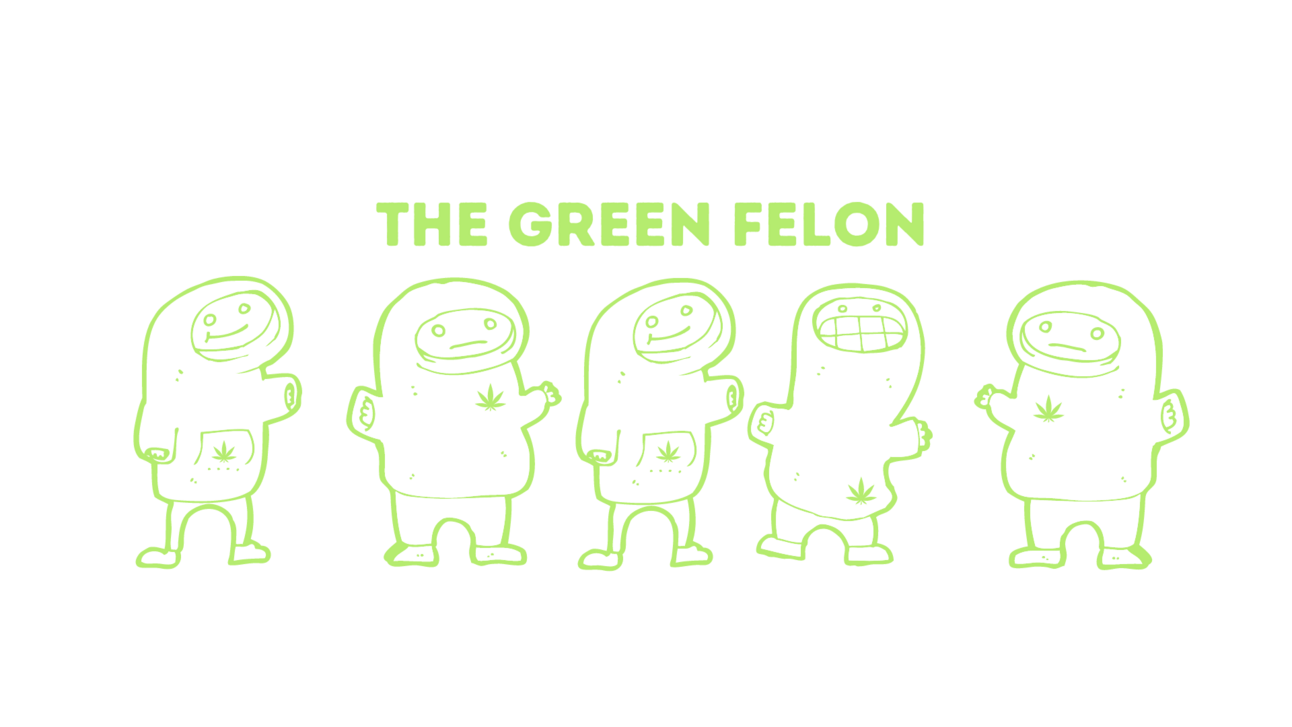
News Highlights 🔱:
Decarboxylation 🌫️ Is Essential for THC Activation: Before infusing cannabis into beer, decarboxylate it by baking at 225–250°F for 30–40 minutes ⏲️ to convert THCA into psychoactive THC. Royal Queen Seeds
High-ABV Beers 🥴 Enhance THC Extraction: THC is more soluble in alcohol levels above 8% ABV. Therefore, brewing styles like double IPAs or barleywines 🍷 are ideal for cannabis infusion, maximizing THC extraction. Beer & Brewing
Brewing with Hemp as a Hop 🐰 Alternative: Hemp can serve as a substitute for hops in beer brewing, offering similar flavor 😛 and aroma profiles. This approach provides a unique twist on traditional beer recipes.Axios

Quick Read 🔖:
🍺 Psychoactive Brewing Synergy: Explores the fusion of craft beer and cannabis infusion, emphasizing THC beer as a precise, sensory-enhancing beverage rather than a rudimentary stoner novelty 🧭.
🍺 Infusion Methodologies Decoded: Breaks down advanced THC integration techniques like nanoemulsification and post-fermentation tincture dosing to preserve flavor complexity and potency 🎛️.
🍺 Strain-to-Style Pairing Matrix: Introduces a curated table aligning popular cannabis strains with specific beer styles to optimize terpene harmony 💞 and gustatory elevation.
🍺 Biochemical Brewing Cautions: Warns against cannabinoid-yeast incompatibility, carbonation pitfalls, and improper decarboxylation—all of which can compromise both safety and flavor ⏳.
🍺 Sensory & Philosophical Fusion: Concludes that THC beer isn't just a beverage—it's an intellectual, emotional, and gastronomic experience demanding precision 📐, intention, and creativity.

Mastering 👑 the Art of THC Beer Brewing
Welcome to the vanguard of vices 🎩, where ancient fermentation rituals rendezvous with modern cannabinoid curiosity. THC beer, once a whispered fantasy of backyard chemists 🧫 and dorm room dreamers, has evolved into a legitimate craft—a niche, nuanced artform 🖼 merging the scientific rigor of brewing with the alchemy of cannabis infusion. While stoners and cicerones once stayed in separate social circles, the union of hops and herb 🌾 is now fermenting a new frontier in beverage innovation.
If you think this is just pouring weed oil into your Bud Light 🚫, kindly sit down, you’re embarrassing the yeast.
The more modern, preferred procedure for infusing THC into beer (at home, anyway) is to first use high-proof spirits to extract the THC from the plant matter, then use the resulting tincture to dose the finished beer.”
Hop-Forward ⏩... With Forward 👉 Thinking
At the intersection of flavor 🍑, euphoria, and chemistry lies the raison d’être of THC beer 🍃. Unlike edibles that rely on unpredictable digestive timelines, or smoking that peaks and plummets with speed 🛫, THC-infused brews offer a measured, sophisticated high. We're talking titration by pint glass, a graduated headspace experience calibrated like a chemistry lab 🔬 protocol.
Craft brewing already involves meticulous control over temperature, pH ⚗️, and ingredient synergy—why not invite the terpenes to the party? With the right methodology, you can extract not just cannabinoids, but character. Think citrusy 🍋 IPAs enhanced with limonene-forward strains, or rich porters that compliment earthy notes from OG Kush 🌰.
Clarifying The Extraction Science ☃️
Contrary to popular opinion, brewing with THC doesn’t involve tossing a nug into a boil kettle like it’s bay leaf in a soup 🥣. THC is hydrophobic and requires lipids or alcohol to bind effectively. The best methods involve:
Nanoemulsification: This buzzword isn't just for wellness influencers 💧. It breaks THC oil into microscopic droplets, making it dispersible in water-based brews and increasing bioavailability.
Tincture Infusion Post-Fermentation: Use ethanol-based tinctures added after fermentation is complete. Heat degrades cannabinoids, so timing here is essential 🕰️.
CO₂ Extraction and Hop Co-Infusion: Pair supercritical CO₂ extraction of cannabis with hop oils for terpene-theatrical elegance 🎭.
The golden rule? Do not compromise the brew's integrity. Your goal isn’t to get high; it’s to elevate the drinking experience 🌄.

The Connoisseur's THC Beer Pairing List 🍽️
Beer Style | Cannabis Strain | Flavor Synergy Description |
|---|---|---|
IPA | Super Lemon Haze | Bright, citrusy zing meets hop bitterness 🌕 |
Stout | Bubba Kush | Earthy richness with chocolate undertones 🍫 |
Saison | Jack Herer | Spicy yeast notes amplified by pine and pepper 🌶️ |
Pilsner | Harlequin | Crisp, floral, and low-THC for subtle euphoria 🌼 |
Amber Ale | Girl Scout Cookies | Sweet malt backbone meets dessert-like dankness 🍪 |
Porter | Northern Lights | Roasty smoothness complemented by a piney lullaby 🌌 |
Sour Ale | Tangie | Tart funk married to citrus explosion 🍊 |
Each pairing is a microcosmic experiment in gastronomy and pharmacognosy, worthy of both sommelier critique and psychonaut applause.
The Decarb Dilemma ⚖️
Decarboxylation—the process of activating THC by heat 🔥—is a precarious partner in beer brewing. Too early, and you lose potency. Too late, and you risk contaminating the flavor 🫐 profile. It must be done separately, ideally in a controlled oven environment at 220°F for 30-45 minutes ⏱️ before extraction begins.
If you hear 👂 the words “let’s decarb directly in the wort,” walk away from that man. He eats ketchup on steak and cannot be trusted 🍖.

Carbonation 🧿 Considerations
Carbonation is both the sparkle and the sabotage 🧨 of THC brews. Over-carbonation can separate emulsions and destabilize the suspension of cannabinoids. Under-carbonation makes your THC beer flatter than a TED 🧸 Talk without metaphors.
You’ll want to carbonate after the THC is fully infused 🔰, and using a closed CO₂ system is recommended. Bottle conditioning is possible, but risky; even yeast doesn’t like a surprise psychotropic guest at the party 🧟.
Yeast Compatibility 🧫
Yeast is a diva 🎤. It needs its sugars, it throws tantrums with alcohol over 10%, and it absolutely does not love terpenes or cannabinoids crashing the fermentation stage. Strains like Saccharomyces cerevisiae can be sensitive to high levels of infused oils 🔅, particularly limonene and myrcene.
Solution? Let yeast finish its aria before introducing cannabinoids. Post-fermentation infusion ensures a smoother flavor curve and fewer off-notes 🎶.

No One Wants a 40mg Buzz Grenade 💣
Unlike a session beer that lets you crush five 🖐️ without fear, THC beer requires restraint and mathematical sobriety. Standard practice for beginner-friendly dosing is 2.5mg to 5mg THC per 12oz bottle 🍶. Higher than that and you may experience what brewmasters call “nap time.”
Always label your creations with dosage, strain, and a cheeky warning label like: “May cause existential clarity during toast consumption 🍞.”
Advanced Pairing 👯♀️ Philosophy
Let’s get real—this isn’t just about “getting crossfaded ✝️.” You’re crafting experiential beverages. Consider:
Myrcene + Malty Stouts: Offers body-heavy sedative effects, best for late-night pondering or quiet rage against AI art 🧑🎨.
Linalool + Light Lagers: Floral sweetness softens the crisp profile, excellent for garden parties or passive-aggressive book clubs 📚.
Pinene + Pale Ales: Keeps you sharp, makes tasting notes poetic, and maybe helps you finally understand jazz 🎷.

A Toast to the High Buzz 🥂
Brewing THC beer ✳️ isn’t just a fusion of chemistry and creativity—it’s a statement of taste, temperament, and tolerance 🌡️. In an age where cannabis is mainstream and microbrews are cultural currency, the THC beer maker is the ultimate mash-up artist 🎧. Whether you're a molecular gastronomy nerd, a psychedelic flavor chaser, or just a hophead with herb ambitions, now is the time to fire up your fermenters and light up 💡 your imagination.
Will your next six-pack 🧃 deliver both flavor 🍓 and philosophy?
⌨️ Hack Your System 🩻

The information provided in this newsletter is for informational purposes only and does not constitute medical, legal, or professional advice. Always consult with a qualified professional before making any decisions based on the content shared here.

